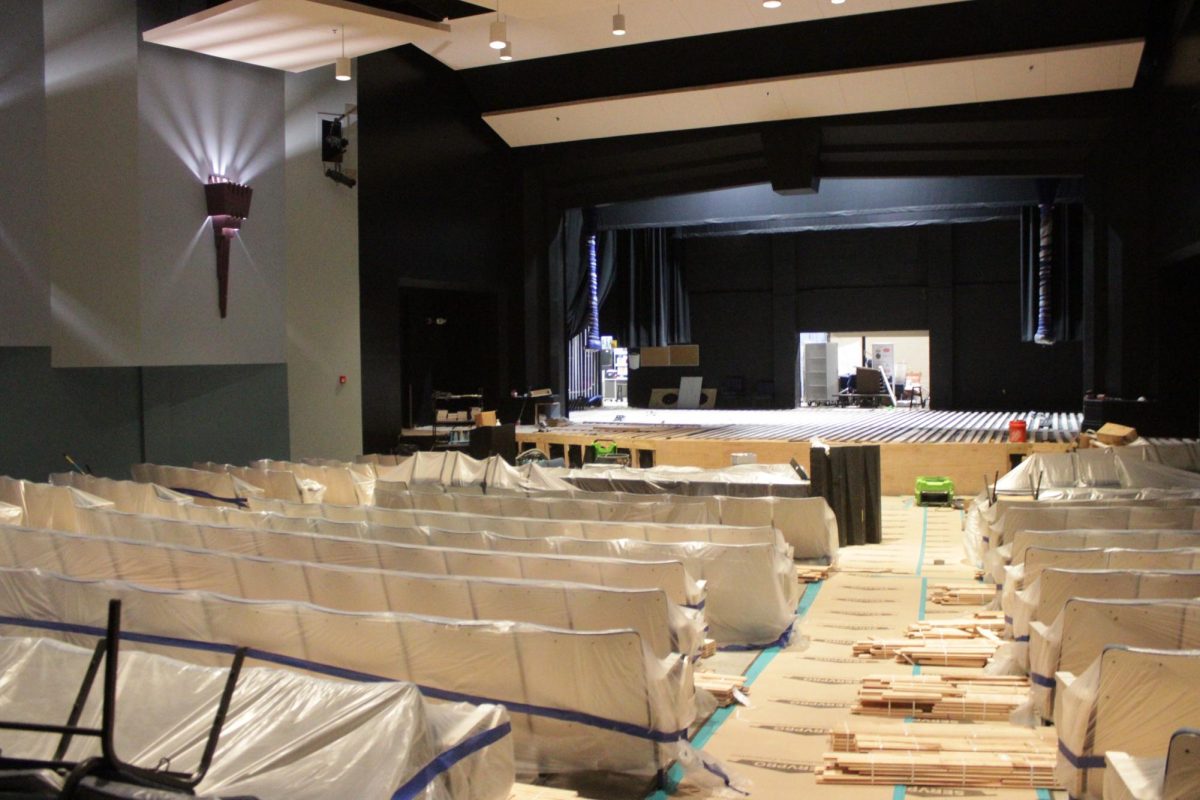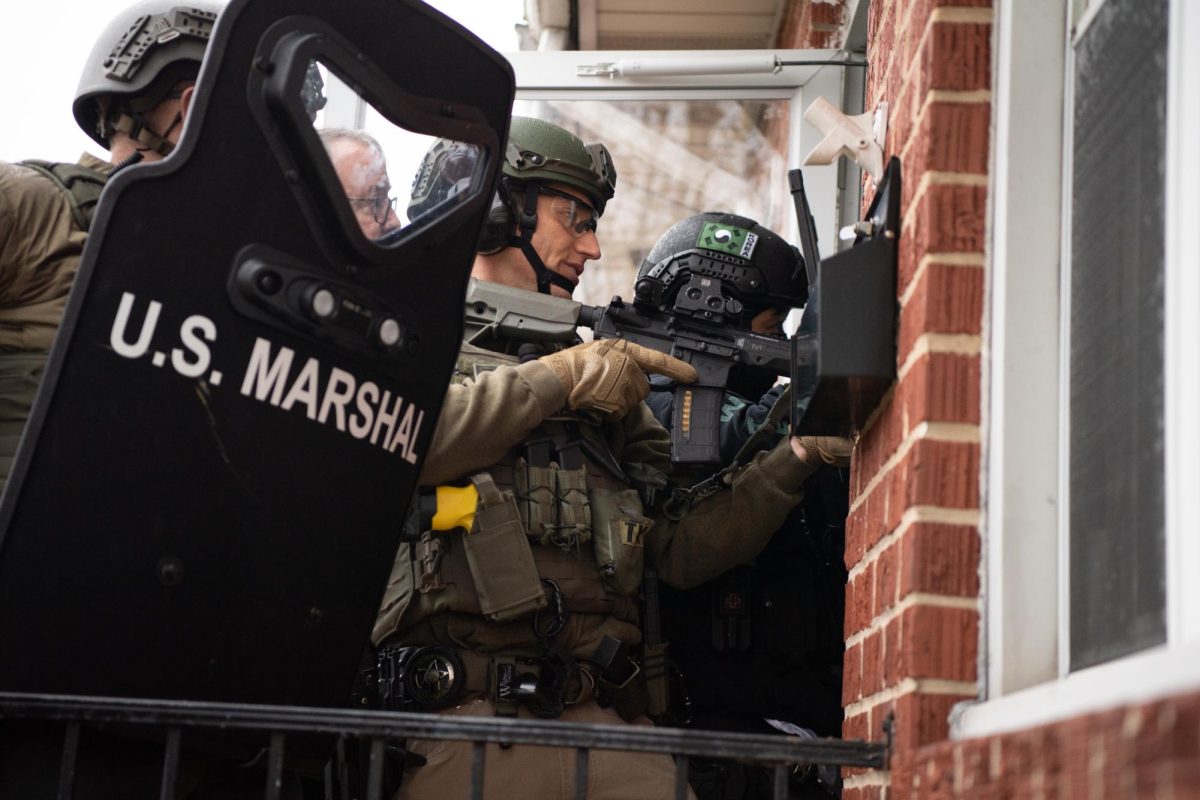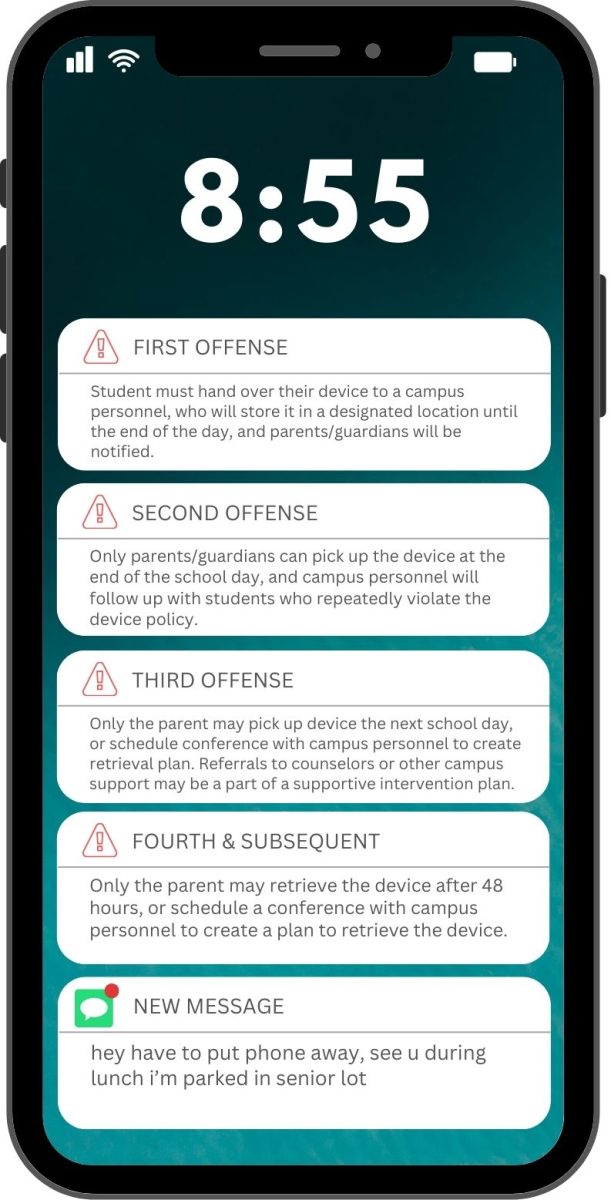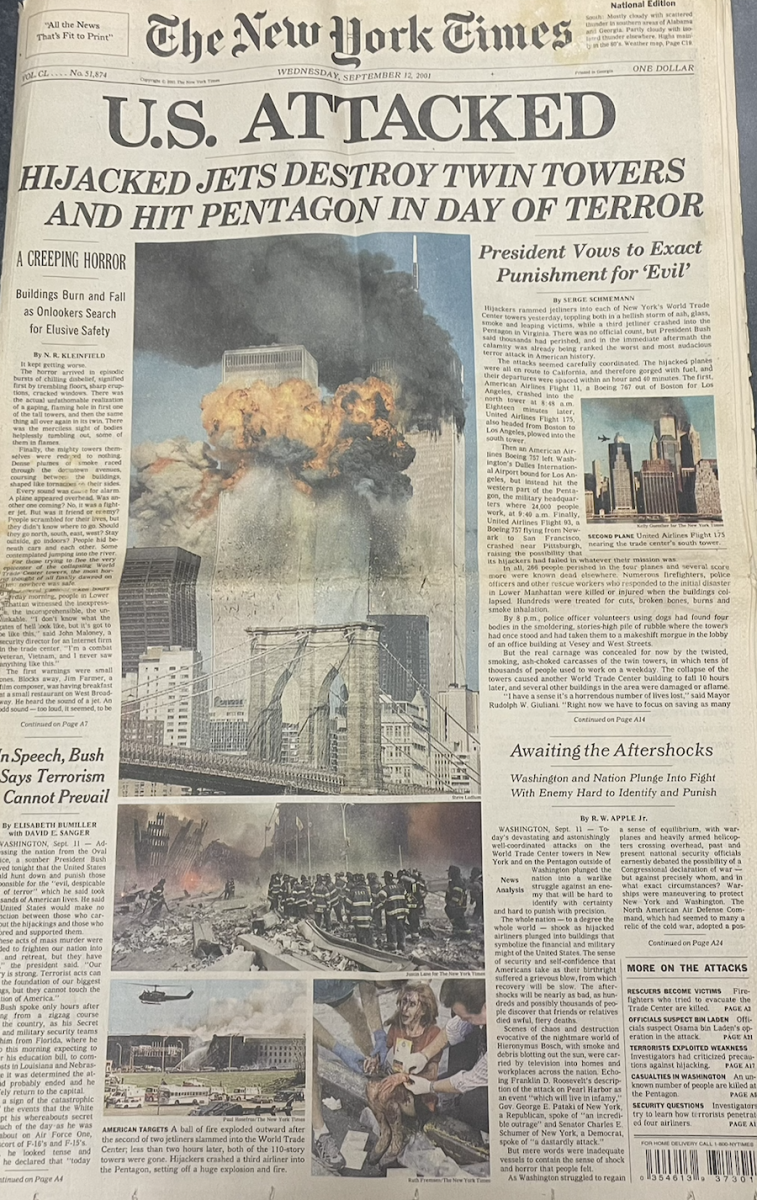[masterslider id=”15″]
Between the rows upon rows of green cots that filled McCallum’s small gym on Aug. 31, people clad in red vests bustled around carrying blankets or large boxes. The scene was a far cry from the gym on an average day, where one would likely see typical gym fare: basketballs, maybe, or students doing burpees.
For two days, McCallum hosted Red Cross volunteers first arriving in Texas from all over country, sent by the organization for two weeks in order to help the victims of Hurricane Harvey’s devastation.
As Category 4 Hurricane Harvey, the biggest rainstorm (in terms of inches of rainfall) in the history of the continental United States, hit South Texas, around 70 Texans died and many were forced to evacuate amidst the flooding. Austin initially expected to receive around 7,000 evacuees in the convention center, according to state officials, but now is housing up to 2,000 in a leased building.
While they were here, the volunteers slept on cots and prepared supplies to aid evacuees arriving to Austin. These Red Cross employees arrived in Austin on Tuesday night and will be staying in Texas for two weeks for their disaster deployment. They plan on issuing meals, setting up shelters, providing supplies for the evacuees, and sending people to South Texas to assist with evacuation and cleanup.
Connie Picard, a 50-year-old from Norfolk, Va., has volunteered in the Red Cross for two years, ever since they helped her recover from a house fire and she decided to pay the good will forward. Acting as the site manager for this particular Red Cross station, she repeatedly emphasized the severity of Harvey’s damage, and that it could take years to recover from.
“Normally, the Red Cross does disaster scales on a scale of one through seven,” Picard said. “They’ve decided that what is happening right now in Texas is an 8. So that is par for the course of what happened with Katrina, and also what happened in Texas many years ago. They are saying that this is the worst disaster to hit Texas since 1961.”
The organization contacted Principal Mike Garrison a week earlier, asking the use McCallum’s facilities as a Red Cross staging area. A generous corporate donation allowed many of the volunteers to stay in a hotel for a few days, but they expected more volunteers that would have to stay elsewhere.
“They worked closely with the principal and the school to give us access to the internet, which was fabulous, because you don’t often have that in a shelter,” said 74-year-old Nancy Rasmussen said. “We have air conditioning, which is great. The facilities here are very good and well taken care of, so our work was very easy for us. We thought we’d only have a few volunteers, but last night we found out we could have as many as 80, 90 people. So we started setting up cots like crazy. “
Initially, Garrison was told that McCallum could potentially need to host evacuees as well. Although that was not the case with Harvey, McCallum has hosted those affected by hurricanes in the past.
“When Katrina hit, we had both of our gyms full of people from Louisiana,” Garrison said. “There were all the people, and their pets too. They were here at least a week, maybe more than that… So that was an interesting ordeal. Then a hurricane hit the Houston area–
I don’t know if it was Rita or Ike– but there were a lot of people who left Houston and came down here, and it was the same kind of thing. It was very challenging, very trying, because you lose access to all those facilities, so the sports teams have to make alternative plans. But we have to do what we can to help the situation, because these people are just devastated and have nothing and need someplace to stay. If they want to use McCallum, we’ll open it up and do what we can to help them out.”
One of the volunteers staying in the small gym, Rasmussen, who travelled to Texas from California, has been in the Red Cross for four years, ever since she saw the effects of Katrina and was inspired to join after she had retired. She has been pleasantly surprised by how large the response has been to Harvey’s devastation.
“Just seeing the willingness of everyone to help surprises me, the number of volunteers that are coming from the community,” Rasmussen said. “We give them some disaster-time training so they can go out and help right away, which is fabulous. You don’t want to turn people away, but they have to have enough training to be useful in a shelter situation. I’ve also been impressed by the logistical support; we’re about to be tested in Austin… [we’re] expecting a population to come in to stay in the shelter as soon as tonight. And I’m very impressed with all the organizations.”
Jolene Davis, 58, who has served in the Red Cross for five years and hails from Montgomery City, Missouri, stresses that people will continue to need aid after national attention has waived, and that each disaster has very different needs.
“In a disaster, things are constantly changing,” Davis said. “One minute there may be a need here, but maybe a levee or a dam breaches and they have another fire to put out, so to speak. So you have to be real flexible. You have to go with the flow. What I bring from other disasters is that they are very different, even from flood to flood.It depends on where it occurs, the number of people involved, the need that existed at the time.”
It is also the job of the volunteers to comfort those who have been affected. Dan Wall, a 68-year-old from Madison, S.D., spent 25 years as a volunteer fireman. Once he retired, he joined the Red Cross so that he could continue working with and helping people. After years of such work, he stresses the importance of empathetic communication.
“[In] interaction with people; you spend your time listening,” Wall said. “People have a lot of pent up emotions, things they want to express. They want to tell their stories; you really have to listen to them.”
Beyond just comforting them verbally, the volunteers do what they can to bring some happiness to the victims of disaster.
“We carry comfort kits, which will have a toothbrush, and deodorant and shampoo,” Davis said. “When you’ve just lost everything, being able to brush your teeth at night is a wonderful thing; being able to provide them with a blanket. Disney gives little Mickey Mouses for little kids. Those types of things, small things, make a difference to those who have just experienced tragedy.”
However, disasters aren’t just hard on the victims themselves. Picard attests that while working with disaster victims is an incredibly rewarding task, it can also take a heavy emotional toll on a person.
“When we’re working with clients we have to try to keep an upbeat attitude, but a lot of times, any Red Cross volunteer will tell you, you go back to where you’re staying and you sit down and have a big cry,” Picard said. “A lot of folks who are coming to us have just lost everything in their lives: their homes, their clothing, some of them have lost pets that are like family to them. Children are completely traumatized and scared and affected mentally by everything they’re going through, especially right now in Houston. Folks have been stranded for two, three days without food, without water. Some have been rescued from sitting on top of their houses while they just watch everything in their lives just be destroyed. That’s why we have mental care workers. They’re specially trained to help not only the clients, but also the volunteers and the staff, deal emotionally with everything that’s going on.”
Two days later, the volunteers heard from Great Hills Baptist Church, who offered to house them for the rest of their stay. They quickly moved there, thanking Principal Mike Garrison for hosting them initially during their stay.
“The volunteers got here, and two days later, poof, they’re gone,” Garrison said. “I wanted to make sure it was nothing we did, and it wasn’t. They were very nice, they complimented us, they said McCallum was very helpful and flexible, but the Red Cross just came up with another plan.”
All the Red Cross volunteers interviewed stressed how important it is to help. Some opportunities to help are donating money to AISD’s Harvey Relief fund, Austin Disaster Relief Network, or Austin Pets Alive. McCallum students can also bring supplies for a school-wide donation drive, hosted by Ms. Watson.
The volunteers recognize just how easy it is to let tragedy weigh one down. However, as Davis says, those times bring out the best of humanity.
“Any time I go to a disaster, it always brings people closer and out of bad comes good; there are wonderful people everywhere,” she said. “You carry away stories that affect your heart all the time.”







